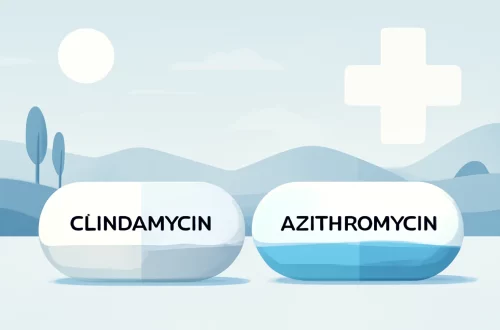
Essential Horse Dewormer Schedule for Optimal Health Management
Maintaining the health of horses is a multifaceted responsibility that encompasses proper nutrition, exercise, and preventive care. One critical aspect of equine health management is deworming, which plays a vital role in keeping horses free from parasitic infections that can lead to serious health issues. These parasites can affect various body systems, leading to decreased performance, weight loss, and even life-threatening conditions if left unchecked.
The equine digestive system is particularly vulnerable to parasites, which can compete for nutrients and cause damage to the intestinal lining. Regular deworming is essential to prevent these infections, but it must be done thoughtfully and strategically. Over-deworming can lead to resistance, while under-deworming can leave horses susceptible to infestations. Therefore, understanding the best practices for a horse dewormer schedule is crucial for any horse owner or caretaker.
Creating a balanced deworming schedule requires awareness of the specific parasites prevalent in your area, the age and health status of the horse, and the type of dewormer being used. It is also important to consult with a veterinarian to tailor a plan that meets the individual needs of each horse. This article aims to explore the essential components of an effective horse dewormer schedule, ensuring optimal health management for your equine companions.
Understanding Equine Parasites and Their Impact
Equine parasites are classified into two main categories: internal and external. Internal parasites, such as roundworms, tapeworms, and bots, can cause a variety of health issues, including colic, weight loss, and anemia. External parasites, such as flies and ticks, can lead to skin irritations, infections, and even transmit diseases. Understanding these parasites is crucial for effective management and prevention.
Roundworms, particularly during the early stages of life, can be extremely detrimental to a horse’s health. Young horses, or foals, are especially susceptible to heavy infestations, which can stunt growth and lead to severe colic. Tapeworms are another significant concern, as they can disrupt the digestive process and lead to weight loss and poor condition. Bots, which are larvae of the botfly, can attach to the stomach lining and cause irritation and discomfort.
To effectively combat these threats, horse owners must be proactive in recognizing the signs of parasite infestations. Symptoms may include changes in appetite, weight fluctuations, poor coat condition, and signs of colic. Regular veterinary check-ups and fecal examinations can help determine the parasite load within a horse and inform decisions regarding deworming protocols.
It is also essential to consider the environmental factors that can contribute to parasite infestations. Pasture management, for instance, plays a crucial role in controlling parasite populations. Rotating pastures, keeping them clean, and minimizing overcrowding can significantly reduce the risk of infestations. This comprehensive understanding of equine parasites and their impact lays the groundwork for developing an effective deworming schedule.
Creating an Effective Deworming Schedule
An effective deworming schedule begins with identifying the specific needs of each horse based on factors like age, health status, and lifestyle. For instance, foals typically require deworming every few months to prevent early infestations, while adult horses may need less frequent treatments, depending on their environment and exposure.
A common approach to developing a deworming schedule is to follow a rotational deworming strategy. This involves using different classes of dewormers to target various parasites while minimizing the risk of resistance. For example, rotating between ivermectin, pyrantel, and praziquantel can help maintain effectiveness against a broad spectrum of parasites.
Timing is also a critical component of a successful deworming schedule. Many horse owners choose to deworm in the spring and fall, aligning treatments with seasonal parasite life cycles. However, it is essential to monitor individual horses throughout the year, as some may require additional treatments based on fecal egg count results or other health indicators.
Incorporating a fecal egg count test into your deworming strategy can provide valuable insights into the effectiveness of your current deworming practices. This test measures the number of parasite eggs in a horse’s manure, helping determine the appropriate course of action. Horses with low egg counts may not need deworming as frequently, while those with high counts may require a more aggressive approach.
Finally, it is essential to consult with a veterinarian to create a personalized deworming schedule that considers your horse’s unique needs and local parasite prevalence. This collaborative approach ensures that you are not only effectively managing your horse’s health but also contributing to the broader effort of reducing parasite resistance in the equine population.
Common Deworming Medications and Their Uses
There are several classes of deworming medications available for horses, each designed to target specific types of parasites. Understanding these medications and their appropriate uses is essential for effective parasite management.
Ivermectin is one of the most commonly used dewormers and is effective against a wide range of internal parasites, including roundworms and bots. It is also effective against some external parasites. Ivermectin is typically administered as a paste or gel and is known for its safety in adult horses.
Fenbendazole is another popular choice, particularly effective against strongyles and certain types of roundworms. It is often used in a five-day treatment regimen to ensure maximum efficacy. This medication is safe for use in foals and pregnant mares, making it a versatile option for many horse owners.
Praziquantel specifically targets tapeworms and is often used in conjunction with other dewormers for comprehensive coverage. This medication can be administered as a single dose, making it a convenient option for horse owners looking to manage tapeworm infestations effectively.
Pyrantel pamoate is effective against roundworms and pinworms and is available in both paste and liquid forms. It is particularly useful for young horses, as it is safe for foals and does not require a prescription.
Each dewormer has its specific application guidelines, and it is crucial to follow the manufacturer’s instructions for dosage and administration. Additionally, it is essential to be aware of any potential side effects and to monitor horses closely after administering dewormers.
In summary, understanding the various deworming medications and their uses is critical for effective parasite management. By staying informed and consulting with a veterinarian, horse owners can ensure the health and well-being of their equine companions.
Monitoring and Adjusting the Deworming Plan
Monitoring the effectiveness of your deworming plan is vital for ensuring the long-term health of your horse. Regular follow-ups, fecal egg counts, and health assessments allow you to adjust your strategy as needed based on changes in your horse’s condition or environmental factors.
If a horse continues to show signs of parasite infestation despite regular deworming, it may be necessary to reevaluate the current protocol. This could involve switching to a different deworming medication, increasing the frequency of treatments, or conducting a thorough examination to rule out other health issues.
Seasonal changes can also impact parasite prevalence, making it necessary to adjust your deworming schedule accordingly. For example, if your horse is exposed to new pastures or environments, it may be at an increased risk of parasite exposure. In such cases, consulting with a veterinarian can provide guidance on the best course of action to protect your horse’s health.
Additionally, keeping detailed records of your deworming schedule, medications used, and any observed changes in your horse’s health can be invaluable. These records can help track the effectiveness of your deworming strategies and inform future decisions.
In conclusion, monitoring and adjusting your deworming plan is a continuous process that requires diligence and adaptability. By staying attuned to your horse’s health and working closely with your veterinarian, you can ensure that your deworming efforts effectively contribute to optimal health management.
In closing, it is important to note that while this article provides valuable information on deworming practices, it does not serve as medical advice. Always consult with a veterinarian for specific health concerns and treatment options for your horse. Your veterinarian can provide tailored guidance to address any health issues and ensure the best outcomes for your equine companions.




